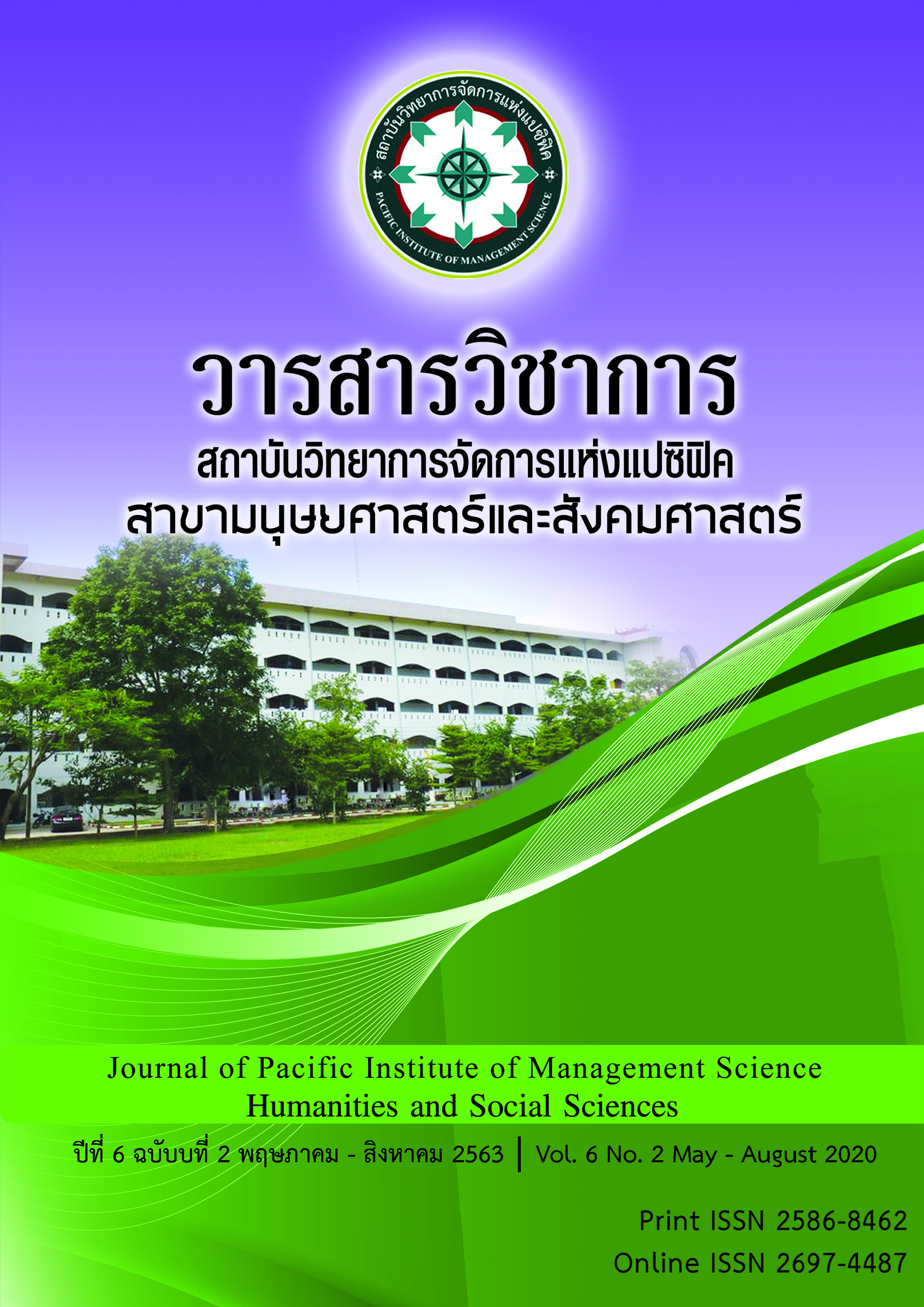ELDERLY PERSONS’ LIFE QUALITY DEVELOPMENT TO ACCOMMODATE WITH THE AGING SOCIETY IN BANGKOK METROPOLIS
Keywords:
elderly persons’life quality development, the aging societyAbstract
The research was mixed in nature – the qualitative andthe quantitative research methods. The qualitative research comprised 20 key informants; the key informants were persons who gained insight into the administrative practices and policies concerning the elderly; all the key informants worked in the public sectors and in some agencies concerned with the elderly affairs. As to the quantitative research, 400 people living in the 4 most crowded areas of Bangkok Metropolis (on December 31, 2016) comprised the sample for the quantitative research. The aforesaid areas were (1) SaimaiDistrich (2) Bagkae District, (3) Bangkaen District, (4) Bangkhunthian District. 100 people were selected from each district. The sample was selected by dint of convenience sampling technique. The research findings were as follows: With regard to the quantitative research, holistically, it was found that the life quality of the elderly appeared to be at a medium level. Separately, the aspects of the life quality in descending order of strength were the following: The realization of self-dignity, relationship with family members, social welfare, social relationship, medical care, mental health, and physical health.
With respect to the qualitative research, it was found that Bangkok Metropolitan Administration operated according to the Life Quality Development of the Elderly Persons Plan (B.E.2527-2560); The Health Office was assigned to be in charge of this task and to prepare training courses for use in the senior citizens schools and in all health promotion centers of Bangkok Metropolis. The operation of the plan was in line with the Elderly Development Policy of the Government. The Government itself has many agencies concerning with the development of the life quality of the elderly such as the Ministry of Social Development and Human Security, having Department of Elderly Affairs responsible for the administration; the Ministry of Public Health having Department of Sanitation and the Office of the Health Promotion Support Funds responsible for the administration.
As to the guidelines used for the development of the elderly life quality according to the Life Quality Development of the Elderly Persons Plan of Phase I (B.E. 2557-2560). The Government attached great importance to the approaching to the aging society of Thailand in that the Government made preparations for the care of the elderly so that the elderly could have a good quality of life. To achieve this end, the Government made great efforts in bringing about the followings: (1)Setting the system or preparedness design in all aspects such as creation of income
assurance, encouraging savings during work life for use after retirement; (2) encouraging the people to learn how to make plans for living after retirement in a systematic manner, to have healthy life style deemed suitable for the ages, to be prepared for coping with changing world, and to lead a valuable life based on self-dependence along with the assistance from their families, communities and the Government. (3) the Government is prepared to have measures to help the elderly by adhering to the 5 pillars of the elderly life quality, namely: (1) mental and physical health, (2) happy family, (3) helpful society, (4) safe surroundings, and (5) security assurance. At present, the Government is preparing the Strategy for the Elderly, Version III. The version covers 10 topics: (1) Determining the elderly affairs as the national agenda. (2) Encouraging the elderly to work and earn incomes. (3) Adapting the community environment so that it becomes friendly with the elderly. (4) Having good data base easily accessible to the elderly. (5) the availability of social welfare for the elderly. (6) Long-term care system of the elderly. (7) Revising laws pertaining to the elderly. (8) Innovative for the elderly, (9) A referendum on the new definition of the elderly person. And 10) changing the attitude of the elderly to accommodate to the emerging aging society.
References
ดวงพร เพชรคง. (2561). เบี้ยยังชีพผู้สูงอายุ. รายการเจตนารมณ์กฎหมาย 12 ต.ค. 2561. สถานี วิทยุกระจายเสียงรัฐสภา สำนักงานเลขาธิการสภาผู้แทนราษฎร.
วิทยาลัยประชากรศาสตร์. (2557). โครงการการประเมินผลแผนพัฒนาคุณภาพชีวิตผู้สูงอายุกรุงเทพมหานคร ระยะที่ 1 (พ.ศ.2557-2560) ระยะสิ้นสุดแผน. จุฬาลงกรณ์มหาวิทยาลัย.
สมศักดิ์ ศรีสันติสุข. (2553). สังคมวิทยาภาวะผู้สูงอายุ: ความจริงและการคาดการณ์ในสังคมไทย. กรุงเทพมหานคร: จุฬาลงกรณ์มหาวิทยาลัย.
สำนักส่งเสริมและพิทักษ์ผู้สูงอายุ. (2553). หน่วยงานภาครัฐที่ดำเนินการด้านผู้สูงอายุ. [ระบบ ออนไลน์]. แหล่งที่มา http://oppo.opp.go.th/info/network.htm (28 พฤศจิกายน 2560).
อรพินท์ บุนนาค. (2557).ความต้องการของผู้สูงอายุในด้านการทำงานและสวัสดิการเพื่อจัดตั้ง ศูนย์บริการจัดหางานให้ผู้สูงอายุในเขตกรุงเทพมหานคร (รายงานผลงานวิจัย). วิทยาลัยประชากรศาสตร์ จุฬาลงกรณ์มหาวิทยาลัย: กรุงเทพฯ.
Encyclopedia, W. (1971). Encyclopedia of Social Work. Chicago: Encyclopedia.World Health Organization. (1986). Ottawa Charter for Health Promotion. Geneva: World Health Organization.
Yurick, A.G. (1980). The Aged Person and the Nursing Process.New York: Appleton, Century Croft.
Downloads
Published
Issue
Section
License
บทความที่ได้รับการตีพิมพ์เป็นลิขสิทธิ์ของ สถาบันวิทยาการจัดการแห่งแปซิฟิค
ข้อความที่ปรากฏในบทความแต่ละเรื่องในวารสารวิชาการเล่มนี้เป็นความคิดเห็นส่วนตัวของผู้เขียนแต่ละท่านไม่เกี่ยวข้องกับสถาบันวิทยาการจัดการแห่งแปซิฟิค และคณาจารย์ท่านอื่นๆในสถาบันฯ แต่อย่างใด ความรับผิดชอบองค์ประกอบทั้งหมดของบทความแต่ละเรื่องเป็นของผู้เขียนแต่ละท่าน หากมีความผิดพลาดใดๆ ผู้เขียนแต่ละท่านจะรับผิดชอบบทความของตนเองแต่ผู้เดียว







